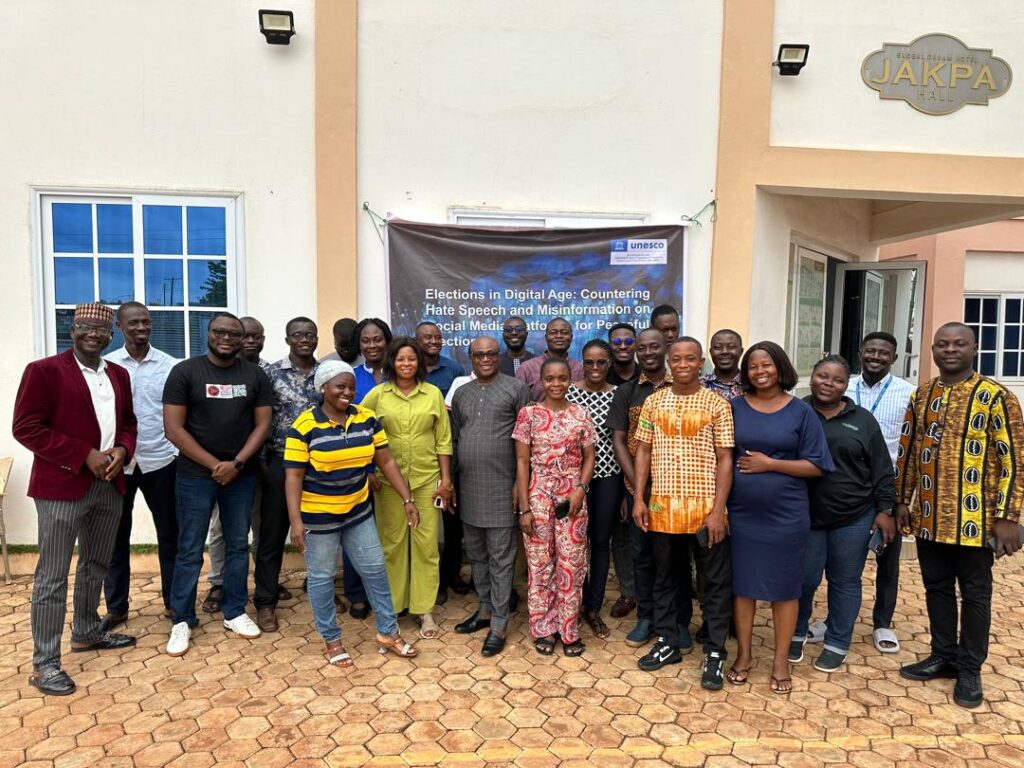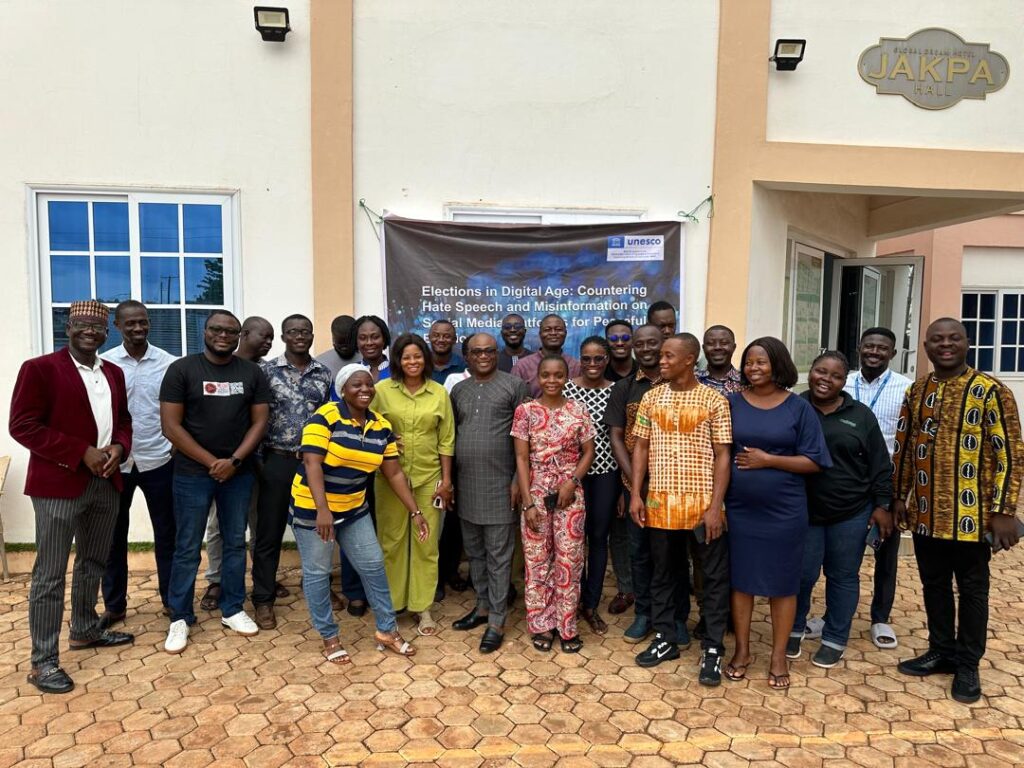Source: Edwin Gogu/GCRN/padfm.com.gh
In a concerted effort to combat hate speech and misinformation during elections, United Nation Education Scientific and Cultural Organization (UNESCO) recently organized a two-day workshop for journalists in the Northern part of Ghana. The workshop, held from June 27th to 28th, 2024, was themed “Elections in the Digital Age: Countering Hate Speech and Misinformation on Social Media Platforms for Peaceful Elections.”
The event highlighted the importance of responsible journalism in the digital era, especially in the lead-up to Ghana’s crucial upcoming elections. Journalists were trained on international standards of freedom of expression, media ethics, and the significant impact of misinformation and disinformation on the electoral process.

Keynote speakers emphasized the vital role journalists play in maintaining democracy. Abdul Hamid Yakub, National Programme Officer for Communication and Information sector of the UNESCO Accra office, underscored the threats posed by hate speech, disinformation, and misinformation to democratic institutions. He called on journalists to see these issues as threats to democracy and to approach their work with professionalism and responsibility.
“The rise of artificial intelligence and digital media has created both opportunities and challenges,” Yakub noted. “As journalists, our core responsibility is to protect and deepen democracy and good governance. We must ensure that the information we disseminate is accurate and contributes positively to society.”
The workshop also addressed the safety of journalists, with discussions on mechanisms to protect them during the election period. Collaborative efforts with the Ghana Journalists Association (GJA), the National Media Commission, and the Ghana Police Service aim to establish a monitoring mechanism to ensure journalists’ safety.
The Ghana Community Radio Network (GCRN) participated actively in the workshop, with three representatives attending to learn and transfer knowledge to their members across the country. GCRN has been a steadfast advocate for professionalism and fact-checking in broadcasting, earning commendation for their active participation and punctuality.
Mr. Albert Kwabena Dwumfour, Ghana Journalist Association (GJA) President, emphasized the need for ethical journalism and the responsibility of media practitioners to counter hate speech and misinformation. He highlighted the formation of the New Media Association to bring social media activists, including bloggers, under the GJA’s supervision to uphold the code of ethics and ensure responsible content dissemination.
“We must counter hate speech, misinformation, and disinformation by encouraging critical consumption of online information, promoting diverse perspectives, and collaborating with fact-checking experts,” Dwumfour stated. “A well-prepared media is crucial, especially during elections, to maintain peace and democracy.”
Adding to the insights from the workshop, a facilitator, Dr. Wilberforce S. Dzisah, Dean of Students at the Ghana Institute of Management and Public Administration (GIMPA), spoke about the pressing issues of false news and disinformation. He elaborated on the distinctions between misinformation (unintentionally false information) and disinformation (deliberately false information designed to cause harm). Dr. Dzisah stressed the importance of journalists understanding these differences to tackle the spread of false information better.
He therefore encouraged journalists to stop saying fake news rather misinformation, disinformation, and malinformation. “False news is a significant threat to journalism,” Dr. Dzisah explained. “Misinformation can occur when there are limitations in the information gathered, while disinformation is the intentional creation of false narratives to deceive the public. Understanding these nuances is crucial for journalists to maintain the integrity of their profession.”
Participants of the workshop shared their thoughts on the importance of such training. A journalist from Tamale, Mr. Ibrahim expressed, “This workshop has been enlightening. The techniques and knowledge we’ve gained here are invaluable for ensuring that we report accurately and responsibly, especially during the tense periods of elections.”
Madam Esther from Fiila FM emphasized the practical benefits of the workshop, stating, “The discussions on protecting journalists and collaborating with authorities to ensure our safety are particularly relevant. We often face risks while reporting, and these strategies will help us stay safe while performing our duties.”
The workshop’s success reflects a significant step towards equipping journalists with the tools and knowledge to navigate the complexities of digital media and uphold democratic values during the electoral process. As Ghana approaches its elections, the efforts of UNESCO and its partners will play a crucial role in promoting peace, accuracy, and responsibility in media reporting.


















